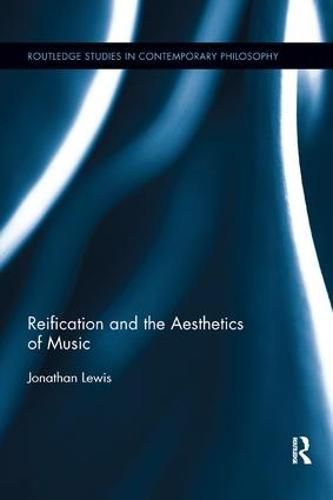Readings Newsletter
Become a Readings Member to make your shopping experience even easier.
Sign in or sign up for free!
You’re not far away from qualifying for FREE standard shipping within Australia
You’ve qualified for FREE standard shipping within Australia
The cart is loading…






This innovative study re-evaluates the philosophical significance of aesthetics in the context of contemporary debates on the nature of philosophy. Lewis’s main argument is that contemporary conceptions of meaning and truth have been reified, and that aesthetics is able to articulate why this is the case, with important consequences for understanding the horizons and nature of philosophical inquiry. Reification and the Aesthetics of Music challenges the most emphatic and problematic conceptions of meaning and truth in both analytic philosophy and postmodern thought by acknowledging the ontological and logical primacy of our concrete, practice-based experiences with aesthetic phenomena. By engaging with a variety of aesthetic practices, including Beethoven’s symphonies and string quartets, Wagner’s music dramas, Richard Strauss’s Elektra, the twentieth-century avant-garde, Jamaican soundsystem culture, and punk and contemporary noise, this book demonstrates the aesthetic relevance of reification as well as the concept’s applicability to contemporary debates within philosophy.
$9.00 standard shipping within Australia
FREE standard shipping within Australia for orders over $100.00
Express & International shipping calculated at checkout
Stock availability can be subject to change without notice. We recommend calling the shop or contacting our online team to check availability of low stock items. Please see our Shopping Online page for more details.
This innovative study re-evaluates the philosophical significance of aesthetics in the context of contemporary debates on the nature of philosophy. Lewis’s main argument is that contemporary conceptions of meaning and truth have been reified, and that aesthetics is able to articulate why this is the case, with important consequences for understanding the horizons and nature of philosophical inquiry. Reification and the Aesthetics of Music challenges the most emphatic and problematic conceptions of meaning and truth in both analytic philosophy and postmodern thought by acknowledging the ontological and logical primacy of our concrete, practice-based experiences with aesthetic phenomena. By engaging with a variety of aesthetic practices, including Beethoven’s symphonies and string quartets, Wagner’s music dramas, Richard Strauss’s Elektra, the twentieth-century avant-garde, Jamaican soundsystem culture, and punk and contemporary noise, this book demonstrates the aesthetic relevance of reification as well as the concept’s applicability to contemporary debates within philosophy.